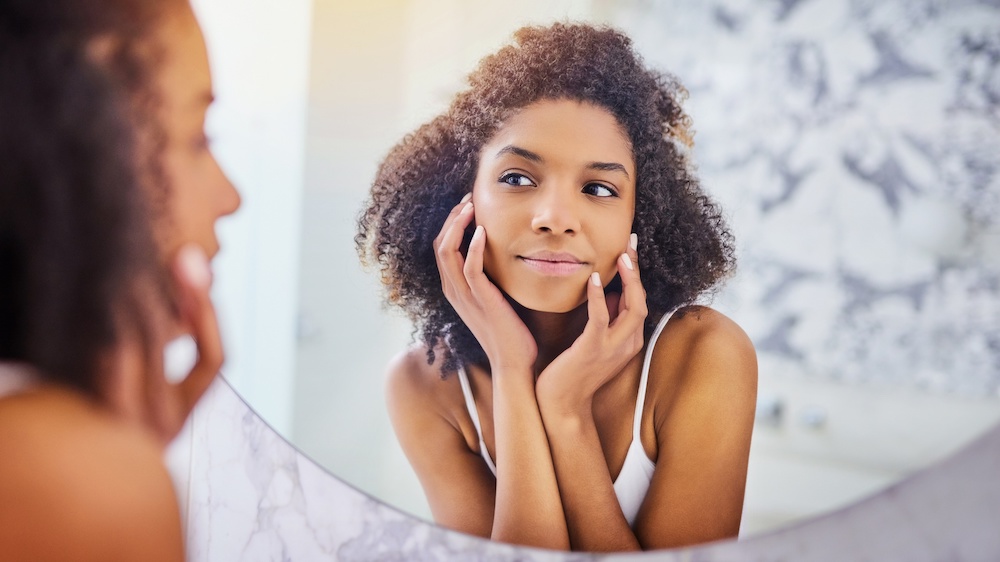If you’re interested in sharing your opinion on any cultural, political or personal topic, create an account here and check out our how-to post to learn more.
____
“You look like a pencil.”
If I had a dollar for every time I heard that phrase in middle and high school, I could buy a new body. Becoming self-aware is just as much about your outer appearance as it is about the kind of person you are on the inside. While middle school can be an awkward time for a lot of us as we dive into the world of hormones, body odor and acne, middle school was a particularly difficult time for me as I became aware of my disapproval of my reflection in the mirror.
I’m not an anomaly. I’m aware that many people go through a time in their life, whether they’re a middle schooler or middle-aged, when they may have a negative relationship with their appearance. But for me, it took me until the last few months of being 20 to re-establish my relationship with myself and make a conscious choice to change the way I speak to myself internally and who I allow to speak on my body. Now, as a quarantined 21-year-old, those old thoughts resurface nearly every day as I’m left with my thoughts and dozens of mirrors around my house.
As soon as I started middle school, I felt an unattainable amount of pressure placed on my shoulders to live up to whatever trend was currently in. There are already enough outside opinions of what you should look like being a young girl. Society conditions girls so young to make sure we’re physically and sexually pleasing for men’s lustful eyes.
Additionally, being a Black girl who didn’t and still doesn’t have “prominent” Black woman features like full lips and curvaceous hips, I’ve always struggled with feeling validated as a Black woman. The most difficult part of my journey has been working to no longer subscribe to the standards of society, but to solidify what I believe is acceptable for my appearance.
I’ve been working specifically this year to silence the standard that’s traditionally been set for how a Black woman should look. Hearing “real women have curves,” since I was 13, left a question mark over my identity for years as I tried to figure out what I was as a stick thin teen. On the other hand, becoming a physically sedentary pandemic workaholic has caused me to gain a few pounds here and there that I don’t exactly want. My whole life I feel like I’ve gone from one end of the spectrum to another when it comes to how I view my body.
In 2019, I decided I was tired of keeping my self-esteem crisis to myself. I found refuge in a young-adult group I was a part of through my church for single women. As I decided to be transparent with where I was mentally, I found those group meetings to be a haven for me to be honest with how I see myself. And although I was met with some cliche responses like, “but you look so pretty,” or “you’re tall and skinny, I would love to look like you,” I was also met with women who were committed to praying for me no matter how long it took until I began to see myself in a more positive light.
After 10 years of struggling with low self-esteem, I honestly didn’t have a lot of confidence in their prayers or uplifting words. But one day last March, I had an epiphany. I was no longer speaking to myself the way I was before. My usual morning routine of waking up, brushing my teeth and verbally abusing myself in the mirror had shifted. Looking in the mirror was no longer dreadful but somewhat delightful. I shared my story with the same ladies who were adamant about me seeing myself the way God sees me. I was ecstatic at the beginning of this year to share how far I’d come with my self-esteem.
Then came lockdown. With no more socialization, the only thing that came knocking on my door was insecurity to take its place back in my life. To be honest, I let it back in much easier than I’d like to admit. Without much of a fight, I’ve found myself resubscribing to old mindsets that I promised myself I’d never speak over myself again.
Then came shame. I’ve felt embarrassed and isolated the past few months, believing that my good news was now fake news. I’ve been debating whether I shared the news of my self-esteem journey too soon, as I’ve gone back down the rabbit hole of self-deprecation many days this year. As I opened up to my mom with tears on a Sunday afternoon, her timely words struck a chord in me.
“Your testimony is still your testimony.”
It’s like she read my mind. While I was feeling like a liar for telling about the strides I had made with my self-love journey, my mom reminded me that my story is still true. I may not be where I want to be, but I’m not where I was before.
The old me would never be vulnerable and share how I’m feeling about my appearance. The old me would never stand up for myself if someone made tasteless comments about my looks. This year has taught me that healing is a spectrum. As I continue to cross hurdles with body image, I remind myself to keep social distancing from those old thought processes.
